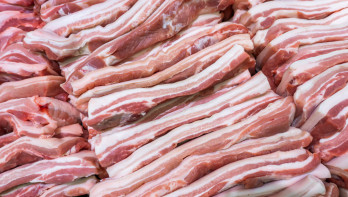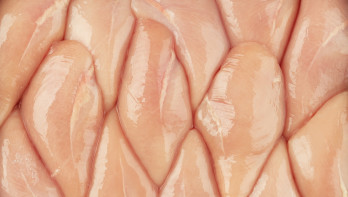Analysis Cattle & Beef
JBS achieves profit but below expectations
JBS has achieved a better result in the second quarter of 2024 than last year, although the performance is weaker than the market's expectations. Particularly, a strong poultry and pork market in the United States turned out to be positive surprises. The beef market in the United States remains challenging, but the departments in Brazil and Australia are benefiting from it.
In the second quarter of 2024, the company reported a net profit of 1.72 billion reais (€280 million). In the same period in 2023, JBS was still running a small loss. However, it's not all celebrations, as the company's profit falls below the market expectation of 2.02 billion reais (€330 million). The company states that it will use the profit to pay off debts.
Chicken and pork drive the profit
At the Brazilian powerhouse, a similar trend is observed as with Tyson. It's not the traditionally largest beef division that brings in the most money at JBS. The poultry meat section also performed well. Besides chicken, the pork market is also picking up at JBS. Together, these two sections were responsible for a whopping 75% of the Ebitda. According to the company, lower grain costs and a better balance between supply and demand contributed to the success of the two divisions. Particularly in the United States, these two markets provided relief.
The American pork section saw a 28% increase in revenue compared to the second quarter of 2023. The total revenue reached 11.28 billion reais (€1.85 billion). The section's profit increased by 16% to 1.8 million Brazilian reais (€300 million). The chicken meat division Pilgrim's Pride saw a revenue growth of 12% to 23.8 billion (€3.9 billion). The profit rose by 20% to 4.8 billion reais (€790 million). Due to the strong performance, the revenue in the United States reached 31.26 billion reais (€5.3 billion).
Strong Brazilian and Australian performances
This offset the weak performance of the traditionally strong American beef sector. Due to two consecutive years of drought, the United States reached the lowest cattle inventory in over seventy years this year, leading to a significant rise in beef prices. The American beef price increased by 5% in the second quarter compared to the (already historically high) prices in the same period in 2023. As a result, exports decreased significantly, and the margin within the American beef division dropped from 1.4% to 0.2%.
However, the beef units elsewhere in the world managed to benefit from this and also offset the weaker performances. The Brazilian business unit saw a revenue increase of a whopping 11% compared to the second quarter of 2023, reaching 15.5 billion reais (€2.54 billion). This strong result is due to a significant increase in sales volumes. Also, in Australia, the company benefits from the weaker American beef market. In that country, the company saw revenue grow by 15% due to increased exports to 8.6 billion reais (€1.41 million).
Strong brands and added value
Finally, the annual report shows that JBS is increasingly focusing on strong brands and products with high added value. According to JBS, this follows the ongoing diversification strategy. This includes a recent investment of 110 million Australian dollars (approximately €67 million) in farmed salmon in Australia. Particularly for Seara, there was a lot of attention this year. The internationally renowned brand, known for its prepared chicken, achieved an additional 13% revenue through investments in more efficient production. The total revenue increased to 11.6 reais (€1.9 billion).



